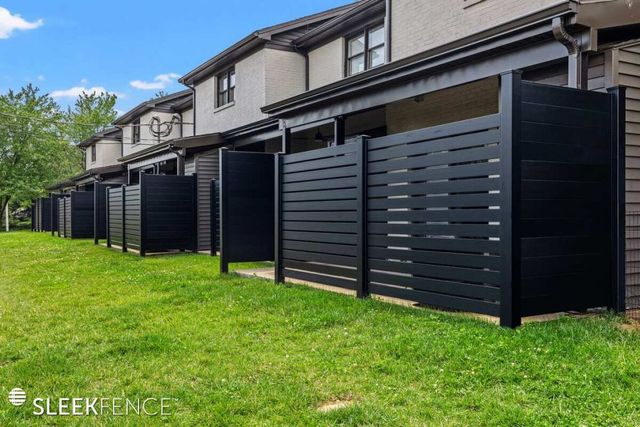All Categories
Featured

When it comes to picking the best secure fencing material for resilience, functioned iron stands out as one of the most reputable and long-lasting choices offered. Allow's take a more detailed look at wrought iron fence and exactly how it stacks up against choices like plastic, timber, and light weight aluminum.
Stamina and Durability of Wrought Iron Fence. Wrought iron is a strong, heavy-duty material that's developed to last for years, if not longer. Unlike numerous various other secure fencing options, wrought iron can endure extreme ecological problems, including severe heat, heavy rain, and even solid winds. This makes it a superb choice for homes situated in locations with unpredictable climate. Due to the fact that it is a metal, wrought iron is not vulnerable to the damage that wood fencings typically experience, such as deteriorating, warping, or insect invasions.
Longevity: Wrought iron fencings are extremely tough and can stand up to influences and other forms of physical tension that may harm various other materials. When appropriately kept, they can last for 50 years or more, making them a financial investment that will give long-term worth.
Wrought Iron vs. Timber Fencing. Wood fencings, while standard and aesthetically pleasing, generally need more maintenance and have a shorter life-span contrasted to wrought iron. Timber is at risk to rot, termites, and weathering with time, every one of which can endanger its architectural honesty. In addition, wood fences may need to be replaced or fixed every 10 to 20 years, depending upon the environment and the kind of timber made use of.
Maintenance: While timber fencings need to be on a regular basis treated with paints, stains, or sealers to keep their look and longevity, functioned iron fences typically need much less maintenance. They may need periodic cleansing or painting to avoid corrosion, specifically in moist or coastal locations, yet they will not suffer from the very same kinds of degradation as wood.
Durability: While a well-kept wood fence may last 20 to three decades, wrought iron can exceed that life-span by numerous years, making it an extra long lasting selection in the long run.
Wrought Iron vs. Vinyl Fencing. Plastic fence has actually come to be a prominent alternative to timber due to its low upkeep and resistance to the elements. Unlike timber, vinyl doesn't rot or warp, and it doesn't require to be painted or treated.
Durability: While plastic is relatively durable and resistant to rot and fading, it still can't match the long-term toughness and strength of wrought iron. A plastic fencing could last around 20 to three decades, depending on ecological factors, but it does not have the architectural stability that functioned iron supplies.
Upkeep: Vinyl calls for minimal maintenance compared to wood, but it can still fade in time, particularly in locations with intense sun direct exposure. Wrought iron may require occasional corrosion prevention treatments but normally requires fewer treatments than vinyl.
Wrought Iron vs. Aluminum Secure Fencing. Light weight aluminum is another metal alternative to wrought iron, and while it shares a few of the longevity attributes of wrought iron, it is normally less strong and strong. Aluminum is extra lightweight and immune to rust and deterioration, making it a popular selection for low-maintenance fencing. It's not as strong as functioned iron and might be much more prone to flexing or nicking under pressure.

Sturdiness: Wrought iron is considerably more powerful and a lot more resilient than light weight aluminum. While aluminum fencings can last for several decades, they may not stand up as well in high-traffic or high-impact locations. In contrast, functioned iron is a lot a lot more resistant to physical damage and can much better hold up against stress and force.
Maintenance: Both wrought iron and light weight aluminum fences call for some upkeep, mainly to avoid corrosion. Nevertheless, light weight aluminum is less most likely to rust than functioned iron, making it a much more low-maintenance choice in areas with high moisture or coastal salt direct exposure.
Final Thoughts: Wrought Iron's Resilience Advantage. Wrought iron stands out as one of one of the most durable fencing materials available, outmatching wood, plastic, and light weight aluminum in terms of stamina, longevity, and total efficiency. While it does need occasional upkeep, particularly to stop rust, its ability to endure extreme climate condition, physical stress, and the test of time makes it an excellent investment for services and property owners trying to find a durable, safe fence service.
For those who prioritize strength and durability most of all else, functioned iron is an unsurpassable option. Whether you're protecting a household building, improving the look of your backyard, or giving safety for a business website, functioned iron fencing will certainly offer years of resilience and visual appeal that few various other products can match.
Latest Posts
Discover Exclusive Auto Repair Specials in Chicago at Montclare Auto Repair
Published May 29, 25
1 min read
Take Advantage of Special Auto Repair Offers in Chicago at Montclare Auto Repair
Published May 25, 25
1 min read
Find Outstanding Car Repair Services at Montclare Auto Repair – Drive with Confidence
Published May 24, 25
1 min read
More
Latest Posts
Discover Exclusive Auto Repair Specials in Chicago at Montclare Auto Repair
Published May 29, 25
1 min read
Take Advantage of Special Auto Repair Offers in Chicago at Montclare Auto Repair
Published May 25, 25
1 min read
Find Outstanding Car Repair Services at Montclare Auto Repair – Drive with Confidence
Published May 24, 25
1 min read